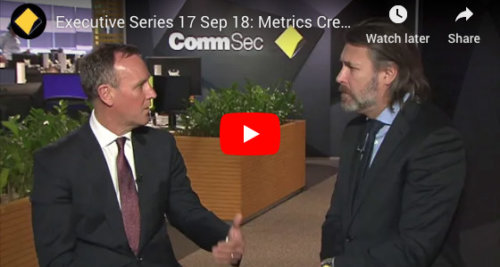PIMCO freezes bond fund IPO on commission review

Global bond giant PIMCO hit pause on its potential $1 billion Australian corporate bond fund IPO in reaction to Treasurer Josh Frydenberg’s snap review of commissions paid by listed investment funds.
Stunned market sources said PIMCO had advised it was suspending the planned initial public offering (IPO) due to the “market noise” created by Mr Frydenberg’s announcement last week.
The $US1.9 trillion ($2.8 trillion) fixed income manager had planned a corporate debt listed investment trust (LIT) raising for early February, with brokers and financial advisers anticipating the deal would be launched in the next one or two weeks.
In a move that sent shockwaves through the financial services industry, Mr Frydenberg directed Treasury to hold a four-week consultation on the merits of commissions, known as stamping fees, paid by fund managers, for selling newly floated listed investment entities.
“Public consultation will allow the government to make an informed decision on whether to retain, remove or modify the stamping fee exemption in order to ensure that the interests of investors are protected and capital markets remain efficient and globally competitive,” Mr Frydenberg said last Monday.
LICs, LITs and REITs under review
The review covers listed investment companies (LICs) and LITs, including real estate investment trusts (REITs).
Market sources said PIMCO had indicated to advisers the bond fund would still ultimately be launched once Mr Frydenberg provided certainty.
In a statement to The Australian Financial Review on Sunday, PIMCO Australia head Adrian Stewart said he welcomed the government’s announcement on the consultation and the “greater clarity it will deliver to the market.”
“We remain committed to delivering high quality investment strategies to the Australian investor community and retirees as they seek to meet their investment objectives.”
“We believe that closed-end, listed income strategies can provide distinct advantages, including access to investment opportunities that daily-priced investment vehicles are typically not able to access.”
The Hayne royal commission recommended all exemptions for conflicted remuneration be reviewed by 2022, but Mr Frydenberg was accelerating the process for listed investment entities.
It follows revelations by the Financial Review that the corporate regulator secretly warned Treasury that dozens of listed investment funds which have raised tens of billions of dollars from retail investors were rife with “poor performance” and were paying “conflicted” commissions to financial advisers for “worse” returns.
Labor’s FOFA law weakened
Since the Coalition government in 2014 weakened Labor’s Future of Financial Advice (FOFA) conflicted remuneration rules, listed fund managers resumed paying sales commissions – usually between 1 and 3 per cent but sometimes higher – to advisers.
Labor has demanded the government immediately close the loophole.
Unlisted managed funds and exchange-traded funds (ETFs) are banned from paying stamping fees to brokers and advisers.
PIMCO was in advanced discussions with brokers over the corporate bond offering. It had not officially launched the deal and was yet to lodge its product disclosure statement with the Australian Securities and Investments Commission.
PIMCO supports commissions
The Financial Review reported in November that the fund would be jointly managed by PIMCO’s global chief investment officer Dan Ivascyn, Alfred Murata and Australian head portfolio manager Rob Mead.
Mr Stewart said at the time that PIMCO was openly advocating the payment of stamping fees to brokers who helped to sell the deal, and said he “fundamentally disagrees” with calls for their abolition on the basis that they represent conflicted remuneration.
If we remove stamping fees, we create a structural disadvantage to individual investors.
— Adrian Stewart, PIMCO Australia MD
“There needs to be a fair and reasonable fee,” he said in November.
“We believe that every investor regardless of how sophisticated they are should have access to advice or seek advice before they invest in an instrument or a security.
“If we remove stamping fees, we create a structural disadvantage to individual investors.”
Mr Stewart said the average investment in an LIC or LIT was $17,000 to $20,000 and a 1 per cent fee, or $200, was fair.
“It’s a reasonable fee for the research that the broker community and the adviser need to go through in preparing the recommendation,” he said. “They are accepting an element of risk with that advice that it is right for the client.”
PIMCO’s views differ from Magellan, the ASX-listed global fund manager that scrapped paying brokers for its latest trust float.
‘Bizarre’ loophole
Core Private Wealth director Trevor Geffin said the commission loophole for listed funds was “indefensible” and created a clear conflict of interest between advisers and their clients.
“It’s bizarre how [unlisted] managed funds and ETFs have the FOFA protections and the same listed investment company or trust doesn’t because of its wrapper,” Mr Geffin said.
“If the royal commission taught us anything, the financial services sector responds strongly to incentives by manufacturing and distributing products.”
The combined LIC and LIT market has roughly doubled to about $50 billion since the Coalition government introduced the stamping fee exemption five years ago, and there are more planned public listings in the pipeline.
The low-interest-rate environment has intensified the search for yield among retail investors and LICs and LITs have capitalised on this by launching products with exposure to equities, hedge funds, private equity, direct loans and leveraged junk bonds.
High-yield loan investor Metrics Credit Partners launched a $638 million top-up offer of its ASX-listed fund just over a week ago, called the MCP Master Income Trust.
Metrics will pay six advisers – Escala, Morgans, Ord Minnett, Wilsons, Bell Potter and Taylor Collison – a selling commission of up to 2 per cent.
ASIC warnings
The deal comes just days after the first high yield, or sub-investment grade, bond fund launch of the year, Neuberger Berman’s $749 million raising for its $926 million listed investment trust called the NB Global Corporate Income Trust.
The Australian Securities and Investments Commission privately advised the government last August its exemption was “hard to justify” for commissions paid by fund managers for selling LICs and LITs, according to ASIC documents published in January by the Financial Review following a Freedom of Information request.
ASIC revealed the Coalition ignored the regulator’s opposition five years ago to watering down Labor’s conflicted commission laws for financial advisers, including warnings it would be to the detriment of consumers.
Financial Review | February 03, 2020
Other News
Metrics Income Opportunities Trust (ASX: MOT) | Investor Information
Metrics Income Opportunities Trust: income today with upside potential Metrics Credit Partners CEO and Managing Partner Andrew Lockhart recently spoke…
Metrics Master Income Trust (ASX: MXT) | Investor Information
Metrics Master Income Trust (ASX: MXT): disciplined income through diversified corporate lending Metrics Credit Partners CEO and Managing Partner Andrew…
INSIGHTS
MCP Income Opportunities Trust (MOT) lists on ASX
Sydney, 29 April 2019: The Trust Company (RE Services) Limited (ABN 45 003 278 831) (Responsible Entity) is the responsible…
MCP Master Income Trust wins Lonsec Listed Fund Award
The award came a year after MXT was listed on the Australian Securities Exchange





